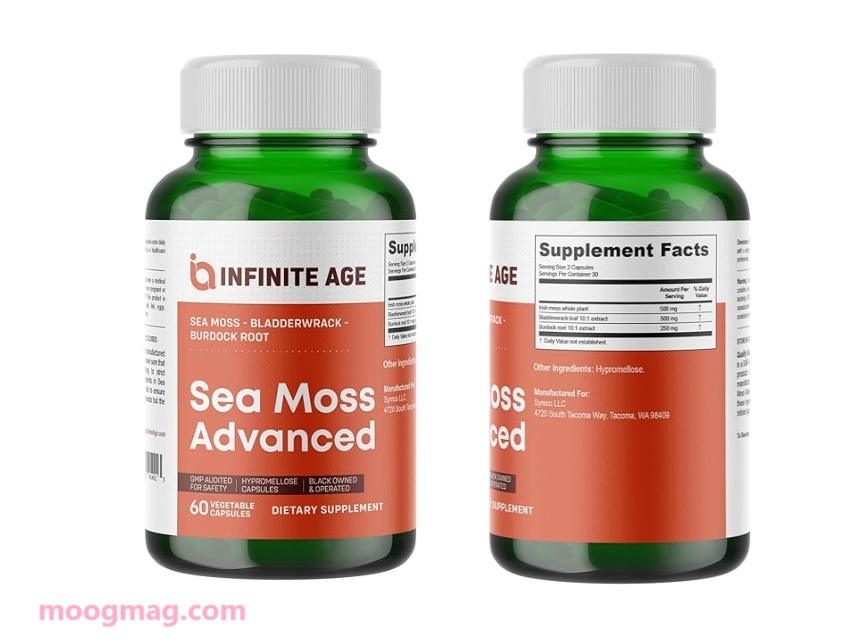Introduction: Best Age to Get Pregnant with PCOS
Polycystic Ovary Syndrome (PCOS) is one of the maximum commonplace hormonal issues affecting ladies of reproductive age. It can make getting pregnant extra tough—but now not impossible. Many girls with PCOS surprise: what’s the first-rate age to get pregnant with PCOS? The answer is nuanced and depends on diverse clinical, way of life, and private elements. In this text, we’ll discover the whole thing you want to recognise approximately the high-quality age to get pregnant with PCOS, together with fertility traits, remedy options, and age-specific strategies.
What is PCOS?
Before diving into the nice age to get pregnant with PCOS, allow’s apprehend what PCOS virtually is.
PCOS is a hormonal imbalance that affects how the ovaries are characterized. It results in:
- Irregular or overlooked periods
- Elevated stages of androgens (male hormones)
- Cysts at the ovaries
- Weight benefit
- Acne and immoderate hair increase
One of the most considerable effects of PCOS is on fertility. Because ovulation becomes abnormal or absent, conceiving can be tougher. However, with the right steering, remedy, and timing, many girls with PCOS cross on to have healthful pregnancies.
Why Does Age Matter with PCOS?
Age is a crucial aspect in each woman’s fertility adventure—however for women with PCOS, it turns into even more important. Here’s why the fine age to get pregnant with PCOS must be carefully taken into consideration:
- Egg fine declines with age, mainly after 35.
- PCOS symptoms may also enhance or worsen over the years.
- Metabolic and insulin resistance problems regularly intensify with age.
- The danger of being pregnant headaches increases after 35, particularly for those with PCOS.
So, the exceptional age to get pregnant with PCOS is frequently in advance in place of later, however there are nevertheless successful pregnancies well into the overdue 30s with proper help.
Fertility Timeline for Women with PCOS
Let’s break down what fertility may additionally appear to be across exceptional age degrees to better recognize the best age to get pregnant with PCOS.
Age 20–24
Pros:
- Optimal egg exceptional
- Less chance of miscarriage
- Fewer metabolic complications
Cons:
- PCOS signs can be newly diagnosed and poorly managed
- Some women won’t be equipped emotionally or financially
Verdict: An extremely good time biologically, but requires cautious control of PCOS signs and symptoms.
Age 25–29
Pros:
- High fertility capacity
- Better emotional readiness
- Improved PCOS control (often after analysis)
Cons:
- Irregular cycles nevertheless a barrier
Verdict: Often considered the nice age to get pregnant with PCOS—a balance of age, health, and emotional preparedness.
Age 30–34
Pros:
- Still inside a strong fertility window
- PCOS can be better controlled with treatment
Cons:
- Slight drop in egg exceptional starts offevolved
- Higher danger of headaches like gestational diabetes
Verdict: Still an excellent time, even though time-sensitive.
Age 35–39
Pros:
- Many a hit pregnancies nevertheless occur
Cons:
- Egg excellent and amount lower
- Higher miscarriage fees
- Compounding PCOS-related dangers (like hypertension, diabetes)
Verdict: Possible, however no longer ideal; are looking for fertility support early.
Age 40+
Pros:
- Possible with assisted reproductive technologies (ART)
Cons:
- Significantly decreased fertility
- Increased dangers for mother and toddler
Verdict: Not the fine age to get pregnant with PCOS obviously, but IVF or donor eggs might also help.
Factors That Influence the Best Age to Get Pregnant with PCOS
Your perfect age will rely upon many personal and clinical factors. These consist of:
- Severity of PCOS signs and symptoms
- Body Mass Index (BMI)
- Menstrual regularity
- Presence of insulin resistance or diabetes
- Lifestyle and stress levels
- Availability of scientific aid or fertility treatments
The fine age to get pregnant with PCOS is whilst these factors are nicely-managed, preferably for your overdue 20s to early 30s.
How to Boost Fertility with PCOS at Any Age
Even in case you’re now not for your 20s or early 30s, there are methods to improve your probabilities of being pregnant with PCOS:
1. Maintain a Healthy Weight
- Losing just five–10% of frame weight can improve ovulation.
- Use a balanced weight loss plan with low-GI foods and regular workout.
2. Track Ovulation
- Use ovulation predictor kits (though less dependable with PCOS).
- Consider basal frame temperature (BBT) and cervical mucus tracking.
3. Use Medications
- Metformin: Improves insulin sensitivity.
- Clomid or Letrozole: Stimulates ovulation.
- Inositol supplements: Helps regulate insulin and cycles.
4. Consider Fertility Treatments
- IUI or IVF may be effective if natural strategies fail.
- Donor eggs or frozen embryos may additionally help girls over 40.
5. Address Mental Health
PCOS can be emotionally draining. Managing pressure thru therapy, yoga, or mindfulness improves usual fertility health.
Can You Get Pregnant with PCOS Naturally?
Yes, many women conceive evidently. The great age to get pregnant with PCOS may also grow your possibilities, but herbal theory is still viable to your 30s.
Studies show:
- Up to eighty% of women with PCOS can also sooner or later ovulate with lifestyle adjustments on their own.
- Medication can result in ovulation in 70–90% of cases.
When to See a Fertility Specialist
If you’re thinking about the fine age to get pregnant with PCOS, however had been trying for:
- 6 months over age 35
- one year below age 35
Then it’s time to consult a fertility professional. Early intervention can enhance achievement fees.
Expert Opinions on the Best Age to Get Pregnant with PCOS
Leading reproductive endocrinologists agree:
- “For ladies with PCOS, the mid-to-past due 20s are frequently the quality age to get pregnant, whilst ovarian reserve remains high.”
- “Don’t wait too lengthy. Egg fine matters, and PCOS is a time-touchy prognosis with regards to thought.”
The Role of AMH and Ovarian Reserve
Understanding your ovarian reserve can help determine the high-quality age to get pregnant with PCOS. A high AMH level is not unusual in PCOS, however that doesn’t always suggest higher fertility. Quality, now not quantity, is fundamental.
Talk in your doctor about:
- AMH tiers
- Follicle rely
- FSH and LH stages
Real Stories: Women Who Conceived with PCOS
Sarah, 27
“After going off start manage, I didn’t get my duration for 6 months. I turned into PCOS at 26. After dropping 10 kilos and beginning Metformin, I conceived evidently at 27.”
Priya, 33
“I notion I waited too long. At 33, I began Letrozole and acupuncture. Three months later, I became pregnant!”
Melissa, 39
“With IVF and donor eggs, I conceived at 39 after struggling with PCOS due to the fact of my teens.”
Their memories show that the satisfactory age to get pregnant with PCOS varies—however proactive steps make a massive distinction.
Best Age to Get Pregnant with PCOS: Summary Table
| Age Range | Pros | Cons | Verdict |
|---|---|---|---|
| 20–24 | High fertility, good egg quality | May lack diagnosis, readiness | Good biologically |
| 25–29 | Strong fertility and PCOS control | Irregular ovulation | Best age to get pregnant with PCOS |
| 30–34 | Still fertile, manageable PCOS | Age-related decline starts | Still favorable |
| 35–39 | Possible with help | Risks rise, egg quality drops | Need intervention |
| 40+ | ART options | Low natural fertility | Not ideal for natural pregnancy |
Final Thoughts: What’s the Best Age to Get Pregnant with PCOS?
If you’re trying to devise your circle of relatives and control PCOS, the quality age to get pregnant with PCOS is generally between 25 and 29 years. This window gives:
- The nice stability of egg nice and quantity
- Improved PCOS control (because of consciousness and treatment)
- Lower danger of complications
However, each female is specific, and with the proper scientific aid, girls with PCOS have conceived into their 40s.
The key’s early making plans, lifestyle change, and scientific steering. Age is a thing—but not a barrier.
Final Tips for Success
- Don’t delay prognosis or remedy
- Get everyday checkups and blood assessments
- Consult a reproductive endocrinologist if over 30 and trying
- Manage weight, strain, and insulin tiers
- Advocate for yourself—there are numerous paths to motherhood
Conclusion
Understanding the nice age to get pregnant with PCOS empowers you to make informed selections about your fertility adventure. While the top-quality window is generally for your late 20s, ladies of their 30s or even early 40s can nonetheless achieve successful pregnancies. The secret is to be proactive, informed, and supported. Whether thru life-style adjustments, medicinal drugs, or advanced fertility treatments, your dream of turning into a mom with PCOS is viable.
If you’re ready to take the rate of your fertility, now may just be your exceptional age to get pregnant with PCOS.
Read more like this: Why Is My Wife Yelling at Me? 25 Possible Reasons & How to Fix It



